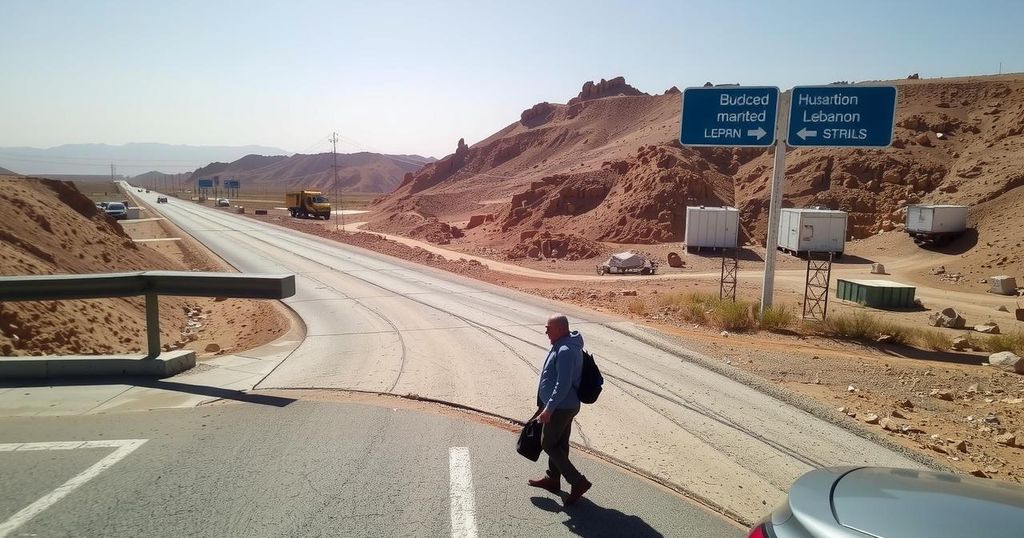Hayat Tahrir Al Sham (HTS) has established military control over border crossings with Jordan and Lebanon, aiming to improve Syria’s economy following the recent change in governance. Led by Ahmad Al Shara, HTS intends to distance itself from extremist ideologies and facilitate trade, despite concerns from regional authorities about potential terrorism.
The extremist group Hayat Tahrir Al Sham (HTS) has gained military control over significant border crossings with Jordan and Lebanon, marking a pivotal moment in Syria’s ongoing conflict. Having previously played a crucial role in the opposition against Bashar Al Assad, HTS aims to streamline operations at the Nasib border crossing into Jordan, facilitating trade and improving Syria’s economy post-conflict. Reports indicate that HTS has deployed troops and equipment at various crossings, signaling a shift in power dynamics following the recent overturn of Assad’s regime that had lasted over five decades.
The new regime under HTS, headed by Ahmad Al Shara, has expressed intentions to establish an effective governing body while distancing itself from extremist ideologies associated with its predecessors, Al Qaeda and ISIS. The recent military presence at critical border points has drawn responses from Jordanian authorities, highlighting regional concerns about the possible spillover of extremism. HTS’s focus on preventing smuggling and regulating border traffic endeavors to boost the Syrian economy and engage Jordan amicably despite the delicate geopolitical context. As HTS continues to assert its influence, the friction between various militant groups and local powers remains a pivotal issue in the evolving landscape of Syria’s governance and territorial control.
Since the inception of the Syrian civil war in 2011, control over border crossings has been contested, significantly impacting trade and the mobility of peoples across borders. HTS’s rise to power has spurred concerns regarding the establishment of a new governing authority that aligns with regional interests and combats terrorism. Historically, Syria has served as a strategic land route linking Europe with the Arabian Peninsula, which was disrupted due to the protracted conflict. HTS’s recent efforts to restore normal operations at border points underscore the importance of these crossings not only for trade but also for stabilizing the war-ravaged economy.
In conclusion, the establishment of HTS control over border crossings into Jordan and Lebanon represents a significant transformation in Syria’s political landscape. With intentions to foster economic recovery while asserting military authority, HTS aims to redefine governance in the region post-Assad. The group’s ability to navigate complex relationships with neighboring states will be crucial in determining the future stability of Syria and mitigating the risks of extremist activities that could emanate from the new regime.
Original Source: www.thenationalnews.com






